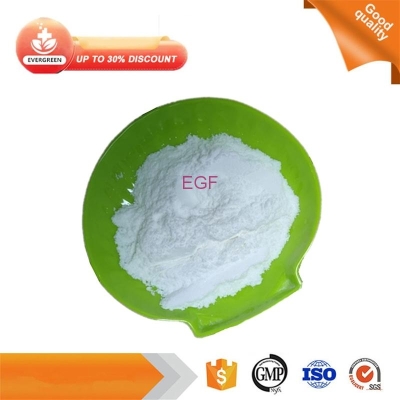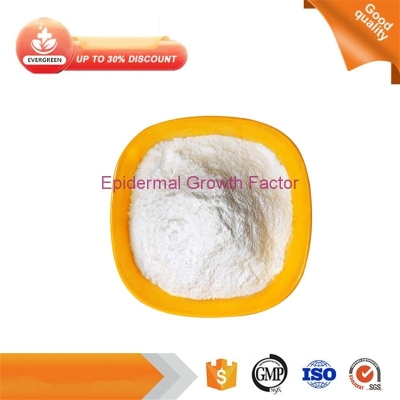-
Categories
-
Pharmaceutical Intermediates
-
Active Pharmaceutical Ingredients
-
Food Additives
- Industrial Coatings
- Agrochemicals
- Dyes and Pigments
- Surfactant
- Flavors and Fragrances
- Chemical Reagents
- Catalyst and Auxiliary
- Natural Products
- Inorganic Chemistry
-
Organic Chemistry
-
Biochemical Engineering
- Analytical Chemistry
- Cosmetic Ingredient
-
Pharmaceutical Intermediates
Promotion
ECHEMI Mall
Wholesale
Weekly Price
Exhibition
News
-
Trade Service
This article is the original of the translational medicine network, please indicate the source when reprinting
Author: Mia
Chemotherapy and targeted therapy are the main treatments for gastric cancer, but drug resistance limits its efficacy
.
Recently, a research team analyzed the proteomes of 206 tumor tissues of gastric cancer patients receiving chemotherapy or anti-HER2-based therapy, trying to develop high-precision prognostic models to predict treatment response
.
On September 29, Ding Chen's team from the School of Life Sciences of Fudan University, Hou Yingyong team of Zhongshan Hospital affiliated to Fudan University, Shen Kuntang of Zhongshan Hospital affiliated to Fudan University, Liu Tianshu team of Zhongshan Hospital affiliated to Fudan University, and Zhao Jianyuan team of Xinhua Hospital affiliated to Shanghai Jiao Tong University published an article entitled "Proteomic characterization of gastric cancer response to chemotherapy and targeted.
" therapy reveals new therapeutic strategies.
"
The study proposes a comprehensive proteomic approach to predict response to chemotherapy and targeted therapies and suggests that their prognosis and therapeutic significance as well as potential regulatory mechanisms may benefit clinical practice
.
background
01
Stomach cancer (GC) is one of the most common malignancies in the digestive system and the second leading cause
of cancer death worldwide.
Risk factors for GC include smoking, a high-salt diet, heavy meat intake, bile reflux, and Helicobacter pylori infection
.
Currently, surgery, chemotherapy and radiation therapy are the main treatment strategies
for GC.
However, 70-90% of GC patients are diagnosed at an advanced stage and have a poor prognosis
.
Widespread chemotherapy resistance occurs in triple chemotherapy (DOS), dual chemotherapy (XELOX), and anti-HER2 therapy
.
It is reported that 80% of GC patients show resistance
.
With the increasing emergence of chemotherapy and targeted therapy resistance, exploring the mechanisms of resistance to these therapies and identifying predictive biomarkers is of great significance
for improving therapeutic outcomes in patients with gastric cancer.
Over the past few years, much of the research on chemotherapy responses has focused on a single drug in a cell line rather than a combination therapy
.
Therefore, there is currently a lack of a comprehensive molecular landscape
for predicting GC treatment responses.
Proteins are seen as "enforcers of life" that provide insight into disease at the protein level and may bridge the gap
between research and clinical practice.
Previously, the researchers collected surgical samples from 84 patients with diffuse gastric cancer (DGC) and provided proteomic analysis
of the DGC cohort at the Beijing Proteomic Research Center (BPRC).
According to proteomic characteristics, the BPRC DGC cohort was divided into three groups (PX1-3), of which group 3 (PX3) had the worst prognosis and was resistant
to chemotherapy.
This suggests an association
between the chemotherapy response and the patient's proteome characteristics.
Based on this finding, the research team sought to establish a comprehensive link
between the proteomic and clinical outcomes.
Research overview
02
The research team studied GC's response
to first-line therapies (DOS, XELOX, and anti-HER2-based therapies) through comprehensive proteomic analysis.
The researchers collected biopsy tumor FFPE samples from 206 therapy-naïve GC patients and constructed a GC cohort
.
There were three clinical treatment subcohorts, including the DOS subcohort (44 patients treated with DOS), the XELOX subcohort (70 patients treated with XELOX), and the HER2 subcohort (71 patients receiving anti-HER2-based therapy
).
Summary of proteomic analysis of gastric cancer
Proteomic clustering analysis showed that GC molecular subtypes have different functions and are associated
with drug response and clinical outcomes.
The researchers verified GC typing and its prognostic differences in other independent GC cohorts
.
They found that GC patients with high MSI-SIG status were sensitive to DOS responses but not to XELOX treatment
.
Bioinformatics analysis showed elevated T cell receptor (TCR) signal transduction and CD8+Tcm enhancement in the DOS sensitive group compared to the non-sensitive group, while the XELOX treatment was the opposite
.
Further comparative analyses showed that patients with high levels of TCR signal transduction were less likely to benefit from XELOX and had better
outcomes in combination with anti-HER2-based therapy.
At the same time, activation of ECM and downstream PI3K-AKT pathways impairs the antitumor effect
of trastuzumab.
Later, the researchers also conducted validation experiments that confirmed the synergistic effect
of trastuzumab in combination with XELOX or PI3K-AKT inhibitors in vitro.
Finally, the team verified that CTSE has the potential to promote GC growth and can enhance the cytotoxic response of GC cells to docetaxel, indicating that it is a candidate marker for drug response
.
High levels of TKTL1, on the other hand, are mediated by abnormal chromosomal isolation and DNA aneuploidy, facilitating the escape of tumor cells from DOC-induced apoptosis
.
Thus, CTSE acts as an intrinsic enhancer of cellular chemical sensitivity to DOC by microtubule stabilization effect, while TKTL1 acts as an attenuator
by inducing abnormal chromosome isolation.
Research summary
03
In short, the construction and validation of the proteomics-based GC first-line treatment prediction classifier contributes to individualized chemotherapy and targeted therapy to a certain extent, and pushes us to the era
of proteomics-driven precision medicine.
What's more, the study suggests that CTSE in combination with TKTL1 could facilitate more effective clinical decision-making to determine the relative benefit
of DOC-based therapy for patients.
Resources:
This article is intended to introduce medical research advances and cannot be used as a reference for
treatment options.
For health guidance, please visit a regular hospital
.
Recommended Live/Events
09/27 14:00-17:30 Shanghai
Innovative technology to facilitate the summit forum on accurate diagnosis and treatment of tumors
Scan the code to participate for free
November 01-02 09:00-17:30 Chongqing
The 1st Southwest Single Cell Omics Technology Application Forum
Scan the code to participate for free
November 25-27 09:00-17:30 Shanghai
The 4th Shanghai International Cancer Congress
Scan the code to participate






